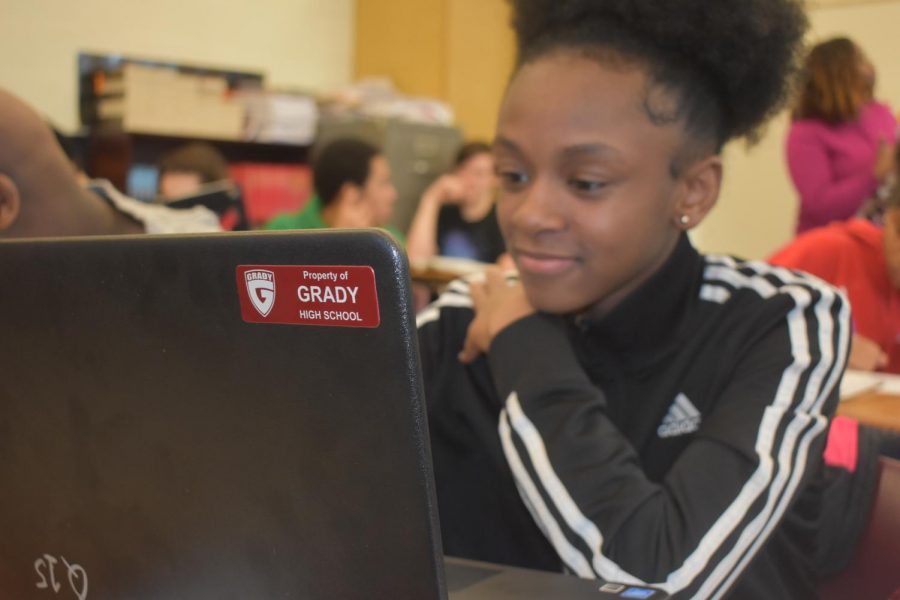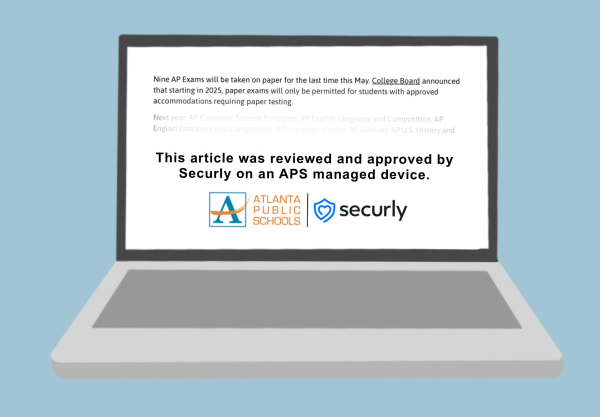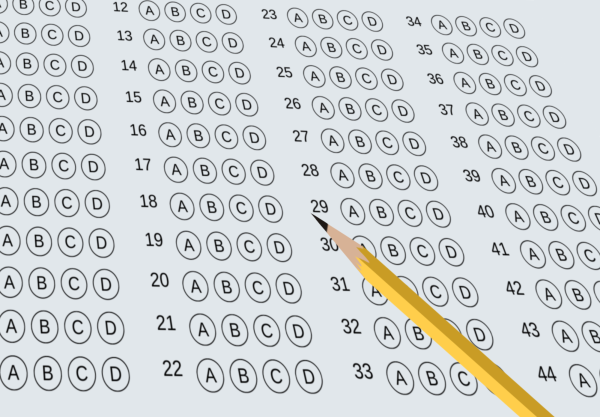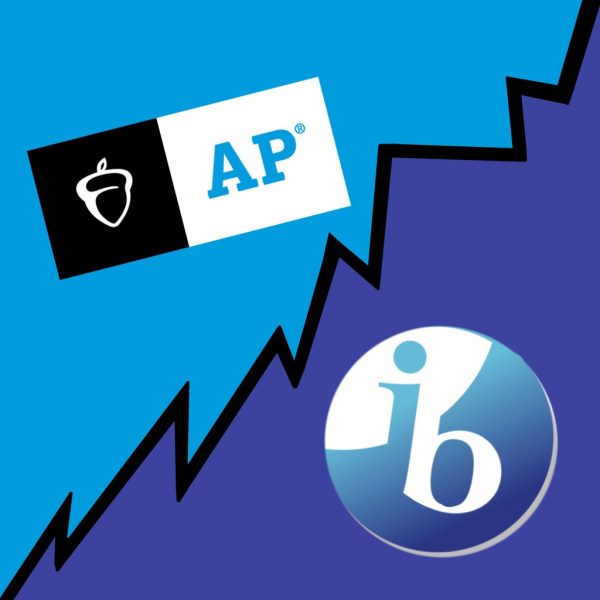Hands on learning leads to better retention of material
Students use new touchscreen laptops in Brooke Ramey’s 10th grade world literature class during the 2018-2019 school year.
February 11, 2020
Technology follows students everywhere. With an iPhone glued to their pocket and computer keyboards always at their fingertips, students have become less engaged in the classroom and do not benefit from technology as much as originally assumed. Constant use of technology results in student’s having shorter attention spans, becoming less engaged in the classroom and retaining less information.
In class, when students type notes, they retain less information than they would by hand writing the notes. Handwriting notes forces students to be attentive to lectures because they have to process the information in order to write it instead of aimlessly typing. This benefits students more come test day when they have retained the information.
In addition to helping students retain information, hands-on lessons prevent teachers from sitting behind their desks grading webquests and makes them explain concepts with direct models in class. Webquests are assignments where students visit particular websites and answer a set of questions based on the information found there. Classwork based on technology, like webquest assignments, train students to look up a certain answer instead of applying critical thinking skills, making inferences or applying the concepts to real life. This habit of looking up the answer shortens student’s attention spans. They expect immediate results instead of working hard to come to a conclusion. The instant flow of information provided by technology allows students to reach answers immediately with little effort, a situation that is rare in real life.
The solution is not to entirely ban technology in classrooms, but use it in a more productive way. Teachers can use the Promethean board to have students engage in group activities, or use phones as buzzers in quizzing games to review content. It is important to nurture a student’s imagination, creative development, and critical thinking skills. This can be implemented by allowing students to express themselves through artistic activities while learning curriculum subjects, instead of processing information downloaded onto a computer screen.
Many schools have begun to recognize this negative impact, requiring students to leave their phones in lockers and turning towards more interactive lesson plans. In the Atlanta area, Sutton Middle School and grades six through eight of the Paideia School both require students to give up technology until the end of the school day. This allows teachers to have control over what kinds of technology enter their classroom instead of constantly reminding students to put away their cellphones or stop playing unrelated videos on their computers.
Dependence on iPads or computers in the classroom can also lead to lower income students being left behind. Some students may be unable to afford technology or only the oldest, slowest version. These student’s devices may lag or crash, resulting in him or her falling behind during the current lesson. If a device is stolen, lost or broken, students can lose their previously saved classwork and be unable to complete online assignments. Students and their parents are also then forced to purchase a new device, adding on another cost for families.
Technology puts an unnecessary stress on families and teachers. Educators can struggle to keep students on task and focused while working on devices and parents may be unable to afford their child’s technology. The use of technology in the classroom often removes the elements of human contact and interaction between teachers and students, which is essential in developing communication and critical thinking skills. As a result, technology often hosts more consequences than benefits for students.














